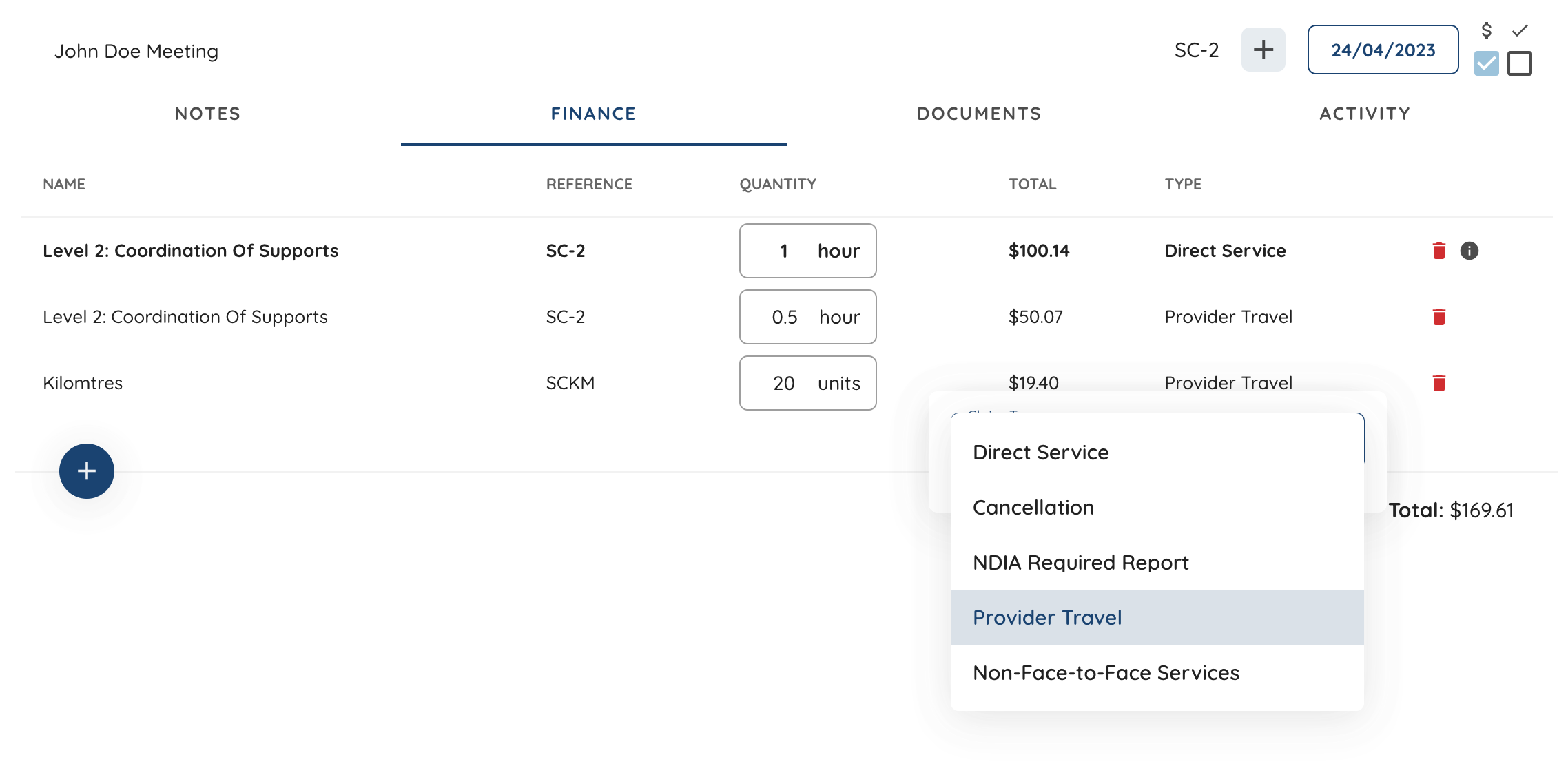Travel expenses for Support Coordinators: What you need to know.
Are you aware that as a Support Coordinator, you can charge for both travel and kilometres (among other things) when doing face-to-face visits to Participants? It's true! However, this may come as a surprise to some in the industry, as it is not widely known. In this blog post, we will dive deeper into the world of travel expenses and show you how Astalty can help streamline billing.
As a Support Coordinator, it's important to understand the charges associated with face-to-face support. This is not only handy for you as a provider but also to be aware of what your Participants may be billed from by external providers.
According to the NDIS Pricing Arrangements, there are two types of costs: labour and non-labour. Labour costs refer to the time providers spend travelling to deliver support, which is capped at 30 minutes in MMM1-3 areas and 60 minutes in MMM4-5 areas.
Essentially the most you can charge with regard to travel time when you live in a MMM 1-3 area is 30 minutes, whilst MMM 4-5 is 60 minutes.
On the other hand, non-labour costs include road tolls, parking fees, and vehicle running costs, which may be negotiated with Participants for a reasonable contribution towards these costs.
It is worth noting that labour costs should be billed using the same line item as the primary support and the ‘Provider Travel’ service type, while non-labour costs should be billed using line item 07_799_0106_6_3 and the ‘Provider Travel’ service type.
Sidenote: Did you know? Providers may charge more than $0.97c per kilometre if the Participant agrees to the charges in advance. Travel support line items are not subject to price limits, so providers can agree on a reasonable price for this type of support.
What does the NDIS say about support items without price limits?
Where a support item does not have a price limit, the provider and Participant should agree on a reasonable price for the support. If necessary, they should also agree on the billing schedule for the support. For example, they might agree that support should be claimed weekly. These claims are subject to the general claiming rules, including that, in general, supports can only be claimed after they have been delivered.
Essentially, anything without a price limit should be discussed and agreed upon prior to the delivery of the support. To ensure best practice, these should be documented in a signed service agreement which you, the organisation, have a copy of, and the Participant also has a copy.
If I’m a Level 2 Support Coordinator, what does this look like in practice?
Let’s say you had a one-hour meeting with John Doe to discuss his support. John lives 30 minutes from your office, and the distance away is 20 kilometres. As a Support Coordinator, billing for the meeting with John would look as follows;
Task | Line Item | Unit Cost | Calculation | Item Cost |
|---|---|---|---|---|
One-hour meeting | 07_002_0106_8_3 | $100.14 | 1 x 100.14 | $100.14 |
Labour costs (time) | 07_002_0106_8_3 | $50.07 | 0.5 x 100.14 | $50.07 |
Non-Labour costs (kilometres) | 07_799_0106_6_3 | $19.4 | 20 x 0.97 | $19.40 |
Total | $169.61 |
What would this look like inside Astalty?

As a provider, billing for travel can be complex, and you need to ensure that your software can track and bill travel expenses. This will help you accurately calculate and charge Participants appropriately. It will also ensure that you meet NDIS requirements by specifying the type of support delivered, for example, ‘Direct Service’ or ‘Provider Travel’.
At Astalty, we have simplified the process and built our case noting section with this in mind. You can seamlessly add notes and further charges like travel and specify what support type was provided. For more information on how this works, see the video below.
Alternatively, if you would like to find out more information about Astalty, you can book a demonstration here;
Finally, ensuring that the Participant you support has sufficient funding to account for travel expenses is essential. We recommend working with the Participant to budget their Support Coordination funding appropriately and always ensure you have funding there to account for things that pop up throughout the plan.
We hope you have found this blog interesting and follow us for more content on Support Coordination.

